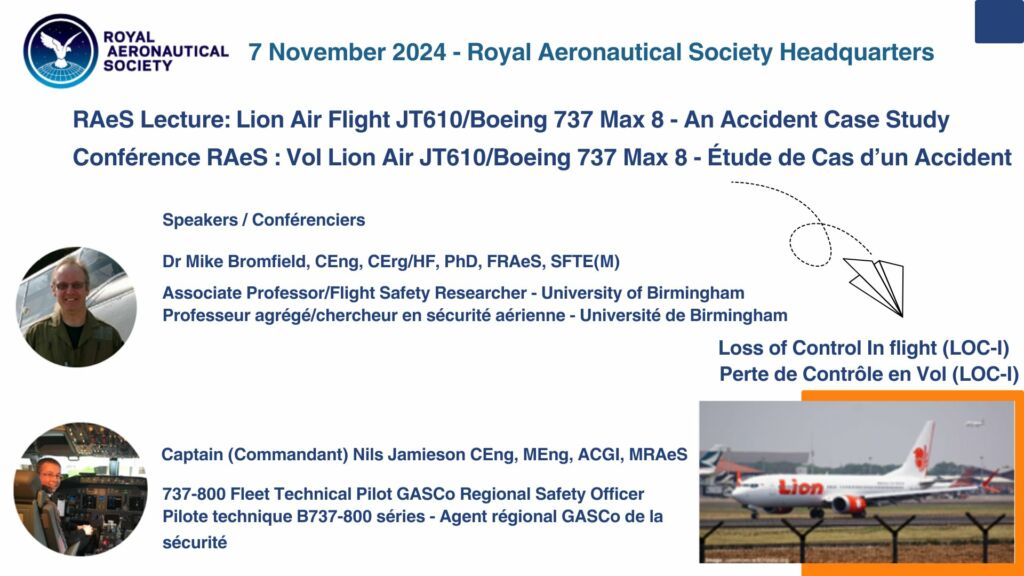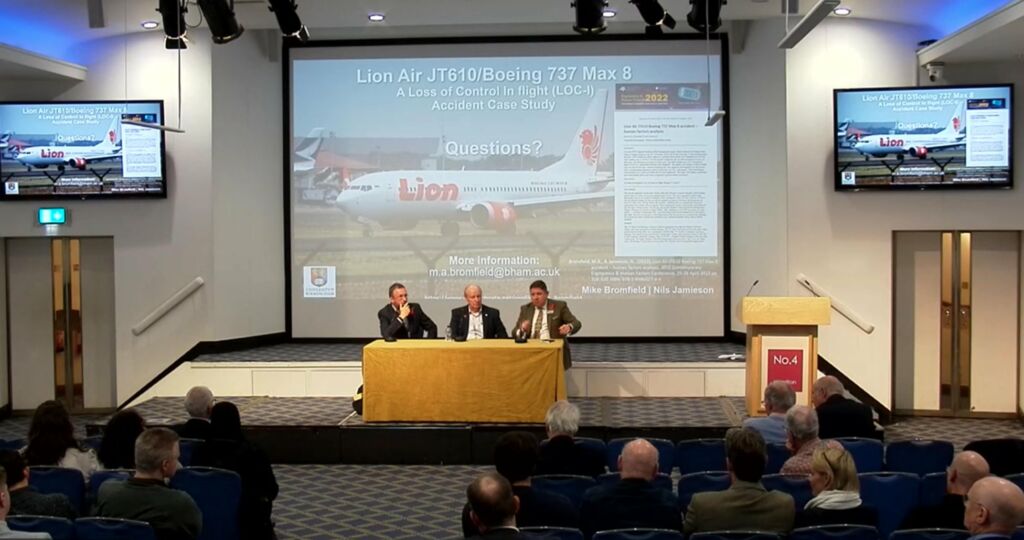The Royal Aeronautical Society lecture: Lion Air Flight JT610/Boeing 737 Max 8 – A Loss of Control In flight Accident Case Study points out that Human Factors are central in the lead-up to a LOC-I event, which remains one of the most significant contributors to fatal accidents worldwide.
LOC-I refers to accidents in which the flight crew was unable to maintain control of the aircraft in flight, resulting in an unrecoverable deviation from the intended flight path.
Here’s a summary of the key contributory and causal factors discussed, and solutions proposed to prevent future occurrences:
🔹 Boeing and Airbus competition.
The B737 Max 8 aimed to compete the Airbus A320 Neo. The certification of the Maneuvering Characteristics Augmentation System (MCAS) to stabilize the aircraft due to an inadequate design, without informing, training the crew, nor mentioning it in the flight crew manual, caused pilots to have a degraded situation awareness, and a cognitive distraction.
🔹 The faulty Left Angle of Attack (AOA) sensor.
The day before the accident, a pilot had experienced a warning of impending stall activated during rotation. The aircraft was automatically trimming the aircraft nose down. He continued manually flying without further incident.
🔹 The AOA DISAGREE alert was disabled.
Pilots were unaware that the AOA DISAGREE alert, a safety feature to identify differences between left/right AOA sensors was disabled. During the event they received multi-channel, conflicting feedback in addition to loud contradicting aural alerts accompanied by haptic alerts from the stick-shaker.
🔹 Human errors, Surprise, Startle.
Highly automated systems which provide limited feedback, no feedback or conflicting feedback, are likely to cause surprise, or even startle to pilots.
The Indonesian National Transportation Safety Committee (KNKT) made 27 safety recommendations to address safety issues covering design, certification, manufacturing, operations, training and maintenance.
Overall, the lecture provides an update on how human behaviour can affect flight safety.
More research is needed, to improve product design and crew training for LOC-I prevention and learn the lessons of both Lion Air and Ethiopian Airlines accidents.
Sincere thanks to the speakers for the excellent presentation, and to the RAeS.
Find out more about aviation safety with a paper outlining that AI may be aviation’s most promising partner 👉
https://lnkd.in/eCHmvCZ5
Check out the RAeS Flight Ops Group LOC-I pod : 👉
https://lnkd.in/e5yrZWgw
if you missed the lecture on Lion Air Flight JT610, you can now watch the recording here 👉https://ow.ly/I5in50Uf0Ea



